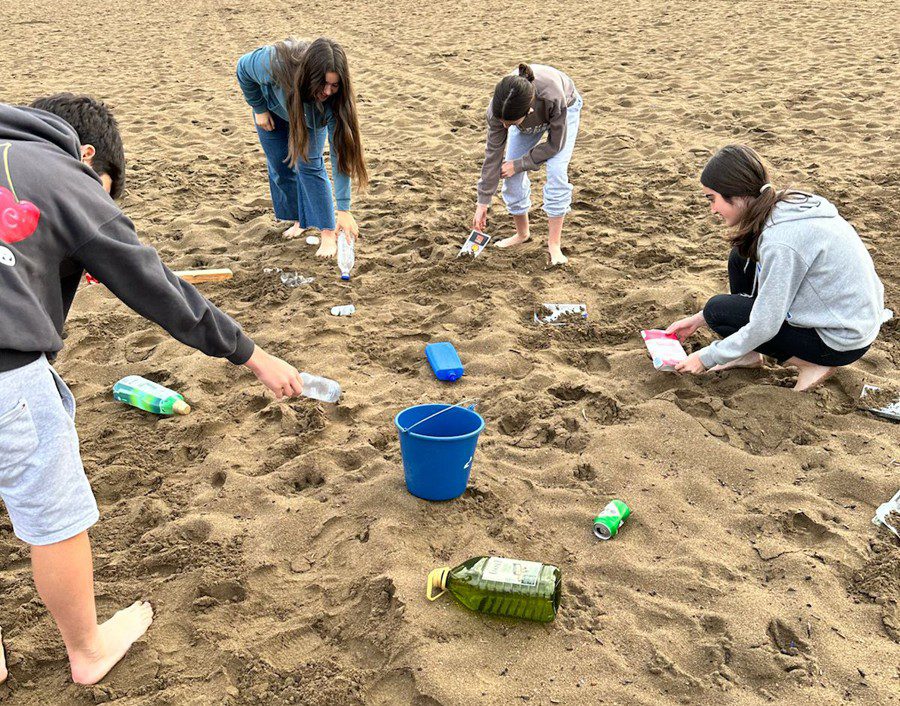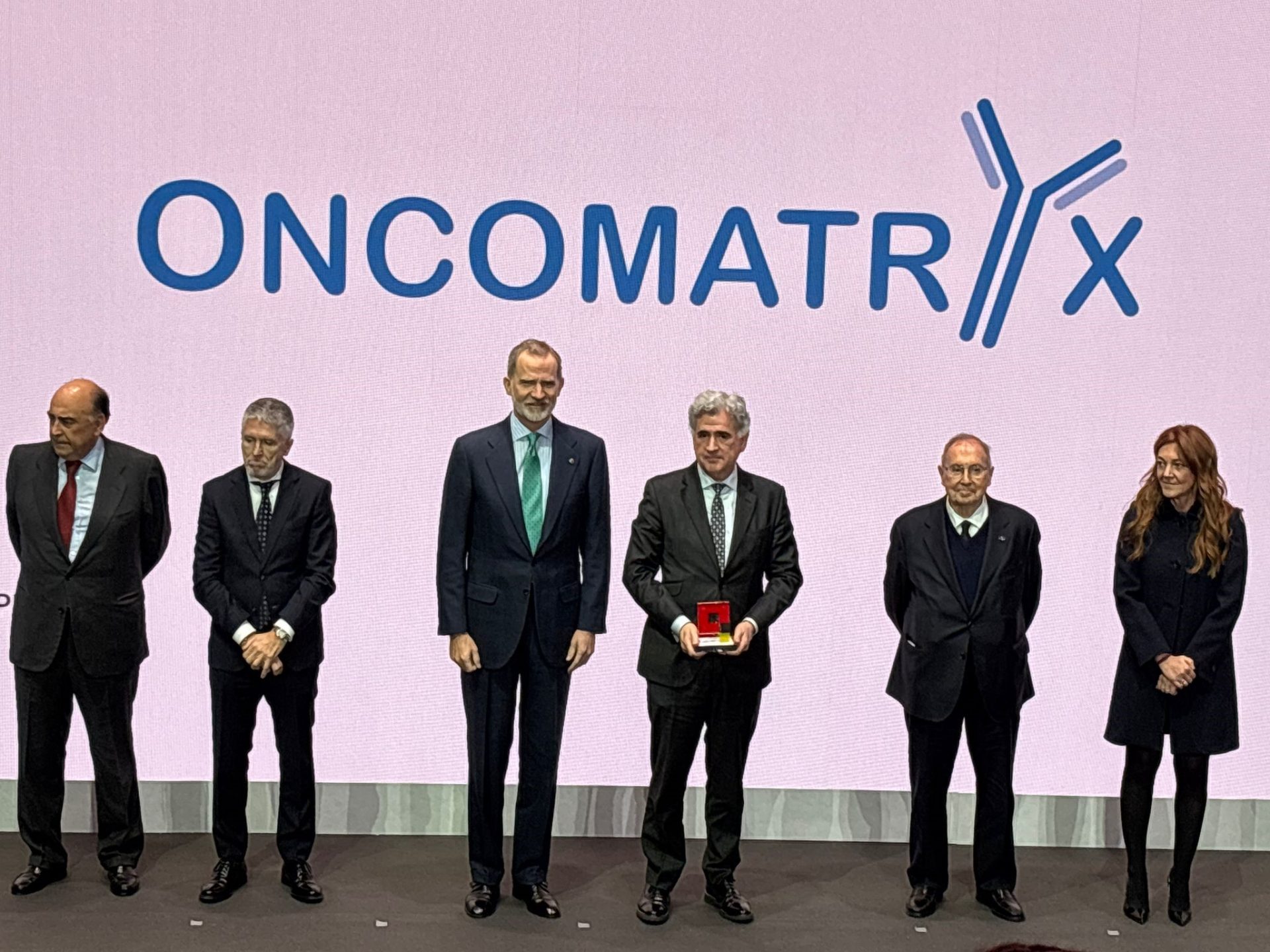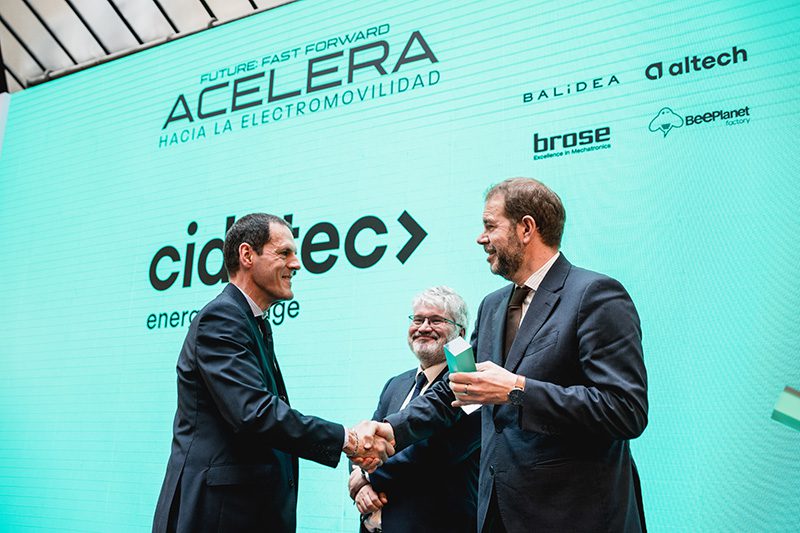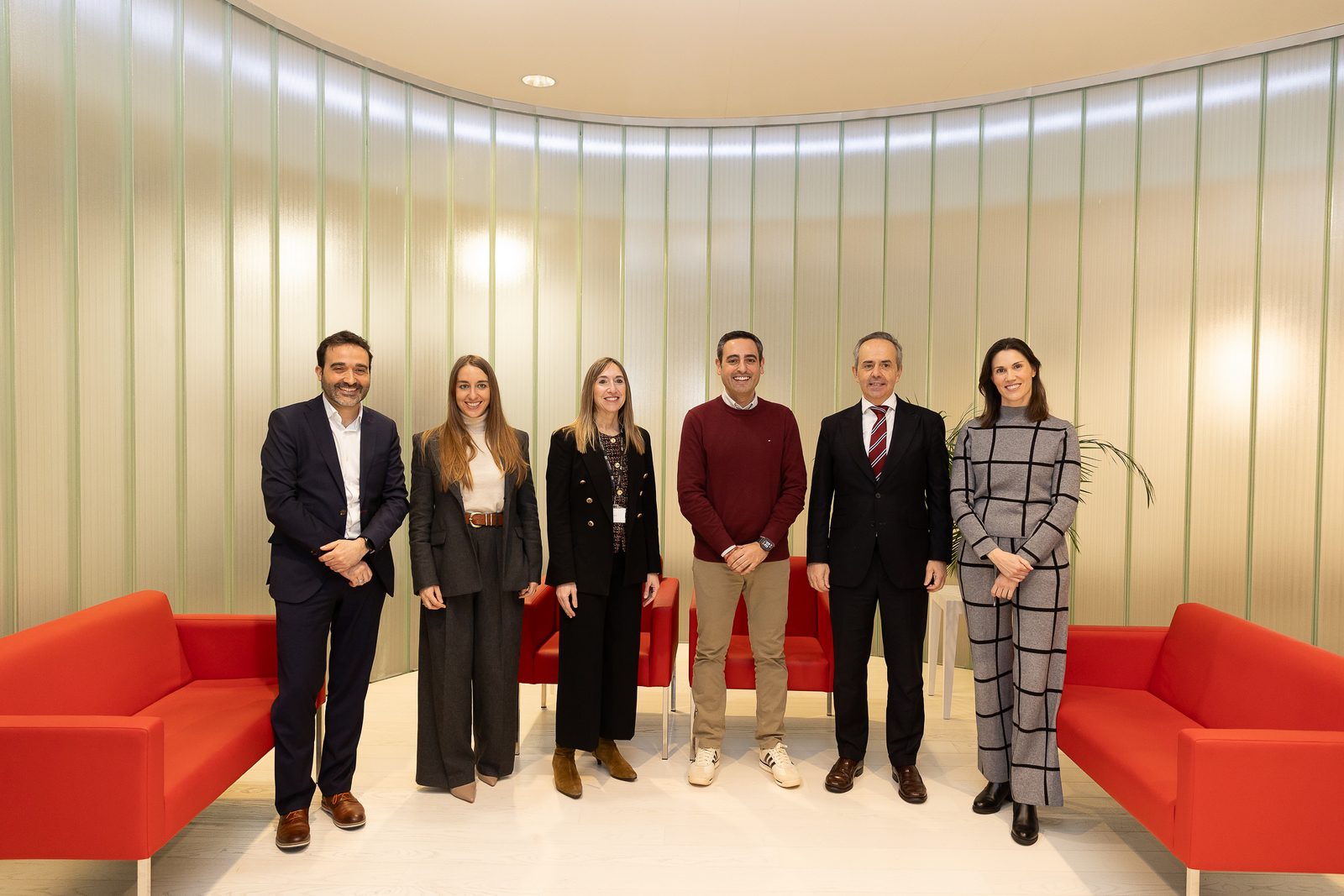Partnership between science professionals and local actors in nine cities around the world to improve climate adaptation
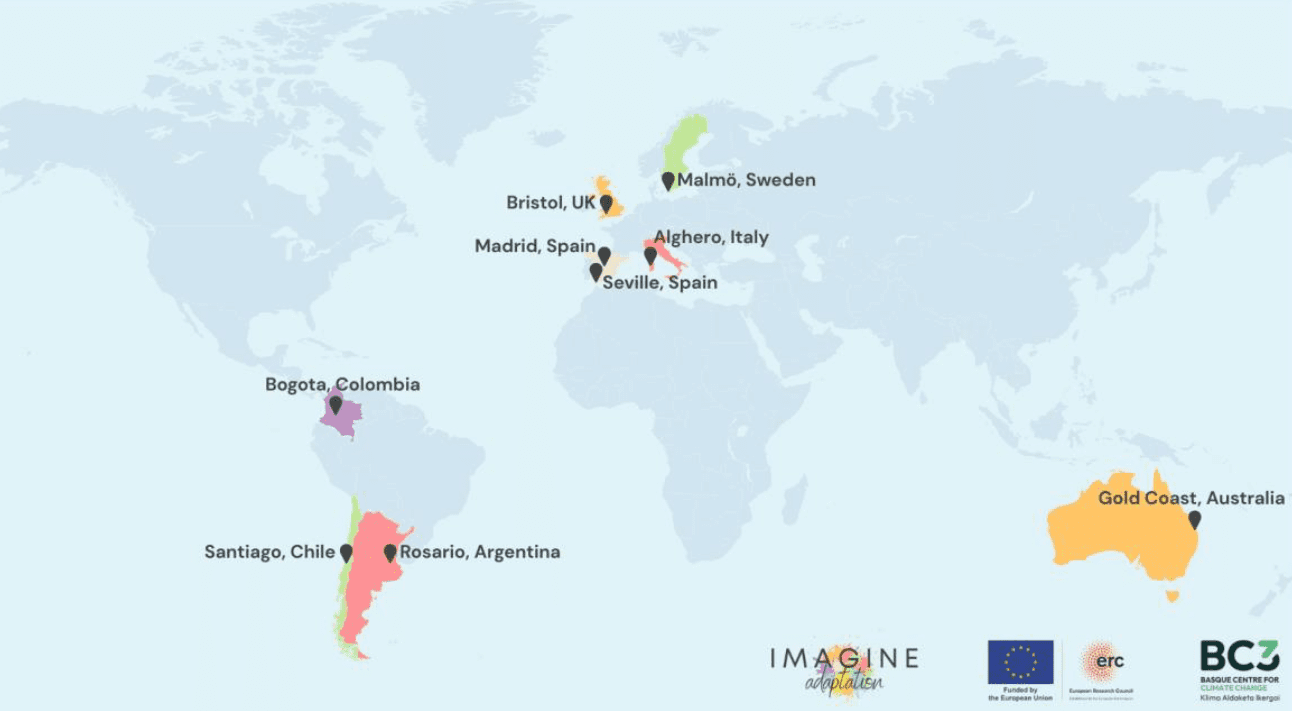
Bristol, Malmö, Alghero, Seville, Madrid, Bogota, Santiago, Rosario and Gold Coast collaborate with the European project IMAGINE Adaptation, driven by the Basque Centre for Climate Change (BC3).
The research team and partner cities will co-develop practical and specific approaches to effectively monitor, evaluate, report and learn from the adaptation interventions implemented in each location.
The European IMAGINE Adaptation project, driven by the Basque Centre for Climate Change (BC3), has reached an important milestone with the confirmation of its first nine partner cities: Bristol (UK), Malmö (Sweden), Alghero (Italy), Seville (Spain), Madrid (Spain), Bogota (Colombia), Santiago (Chile), Rosario (Argentina), and Gold Coast (Australia).
These cities will collaborate with the IMAGINE Adaptation team to address one of the most critical challenges in local climate adaptation: how to effectively monitor, evaluate, report and learn (MERL) from implemented adaptation interventions. In a context marked by uncertainty, complexity and change, the team works with local stakeholders to improve the way adaptation is tracked, assessed and understood.
‘Adaptation is an ongoing and context-specific process, as is MERL,’ explains Marta Olazabal, project leader and Ikerbasque Research Associate Professor at BC3, ’We work closely with our partner cities to understand the challenges they face in assessing adaptation in practice and to co-develop specific and practical approaches to improve learning and decision-making.
Over the past 12 months, the IMAGINE Adaptation team has interacted with local authorities, practitioners, citizen groups and researchers in each city to jointly create tailor-made work plans for each territory. These plans lay the groundwork for a two- to three-year collaboration, focused on addressing specific gaps in adaptation assessment and strengthening local capacity to define, measure and learn from their actions.
Call for cities
Cities were selected through an open call. The selected applicants demonstrated a strong local commitment to climate adaptation initiatives and a clear interest in improving MERL systems. Each selected city now has a local working group of 3-6 local actors who guide and co-produce the research process in their city.
‘Our aim is not to impose external frameworks, but to work with local adaptation actors to define what adaptation means to them and how we can better understand what works, what doesn’t and why,’ adds BC3 postdoctoral researcher Ana Terra Amorim-Maia. ‘We recognise that all steps in the MERL process are accompanied by challenges that local actors have managed in creative and committed ways.’
Cecilia Alda Vidal, another BC3 postdoctoral researcher on the team, highlights that the IMAGINE Adaptation team is learning from both local partners and research team partners.
Global community
The IMAGINE Adaptation project, funded by the European Research Council (ERC) and running from 2023 to 2027, employs a transdisciplinary approach to assess multiple forms of knowledge and emphasises early collaboration between researchers and local stakeholders. This way of working helps to expand the solution space and generate more equitable, relevant and context-sensitive evaluation practices.
Throughout the initiative, the final 12 social cities will form a global community of practice, sharing insights, lessons and innovations as their MERL adaptation processes evolve. By creating spaces for dialogue and continuous learning, the project aims to boost the legitimacy and effectiveness of local adaptation planning and action.
‘Adaptation is not just a technical task, it is a political and relational process,’ concludes María Loroño-Leturiondo, postdoctoral researcher at BC3, ’Through joint knowledge production and a focus on learning, cities can build stronger foundations for well-informed and inclusive adaptation over time.
